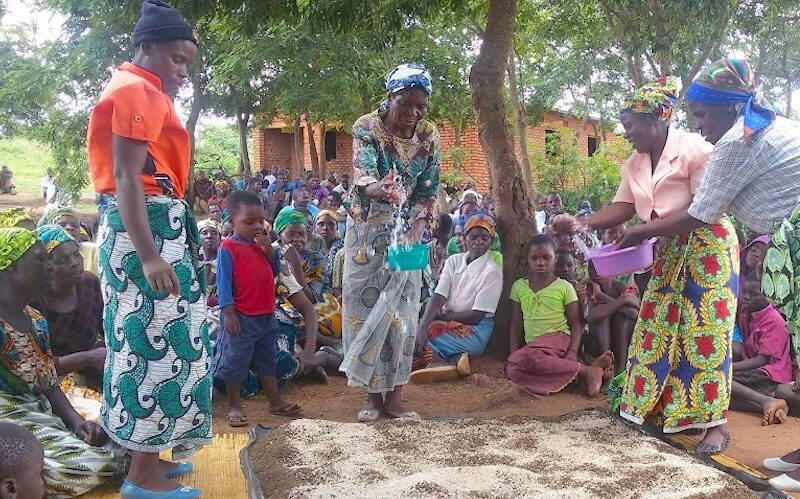
A Smallholder Farmer Learns Tools to Feed Her Family in Malawi
By Shae Davidson
The farms of the women in Maria’s church are failing. Corn harvests in Malawi have been declining due to changes in rain patterns related to climate change, and corporate agriculture has depleted the soil and increased economic dependency. As harvests dwindled over the past few seasons, the price of corn flour almost doubled. Farm families cannot rely on foreign food shipments due to the Russian invasion of Ukraine and dramatic U.S. cuts to foreign aid. Maria’s friends and neighbors face removing their children from school and cutting back on other expenses in order to buy food.
Maria empathizes with their concerns. She had become a farmer after dropping out of seventh grade. Her early attempts to raise crops met with mixed success. Relying on chemical fertilizers, she felt she lacked the knowledge she needed to care for her corn crop and attributed any good harvests to luck rather than skill. Maria struggled to produce a harvest while raising a young child in an abusive relationship.
In 2019, Maria learned about Ecology Action’s Grow Biointensive farming program, an approach to sustainable agriculture that increases yields, restores soil, and conserves water on marginal land.
BGR partner Ecology Action has worked for half a century to promote the Grow Biointensive mini-farming technique. Emerging from research and community activism at the University of California–Santa Cruz and the city of Palo Alto, the project grew out of efforts to find the smallest amount of land and resources a farmer would need to sustainably meet their needs. The group’s approach to intensive farming spread quickly, even gaining support from the U.S. Peace Corps.
Maria had tried other farming techniques in the past, but had met with failure. After she attended an Ecology Action seminar and visited a demonstration plot, however, the enthusiasm of the young farmers she met inspired Maria to apply their ideas to her farm. Her corn harvest expanded dramatically, and Maria began diversifying her farm by planting groundnuts and soybeans. With her new earnings, she is able to support her siblings and young child.
Maria became a devoted member of the local farmers’ club, where she shares her new knowledge with neighbors and works to encourage them to explore sustainable farming as a tool to combat hunger, protect the environment, and promote local economic development.
BGR Board member Shae Davidson completed a Ph.D. in U.S. History at Ohio University, with research exploring the importance of inclusive community partnerships in building food systems. His past experience includes serving as a museum director, a humanities instructor, and a researcher. Shae currently works at a nonprofit that supports survivors of gender-based violence.




